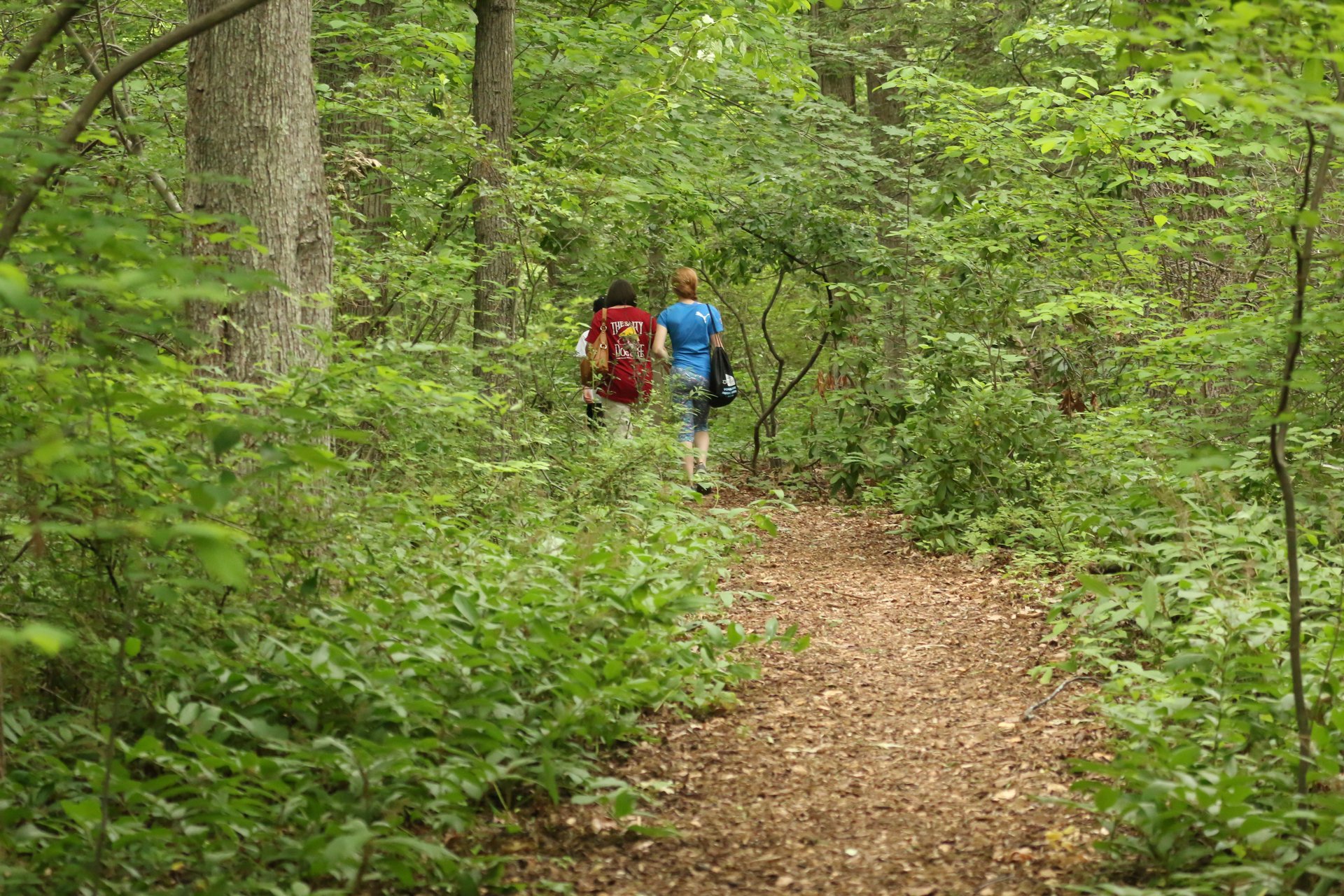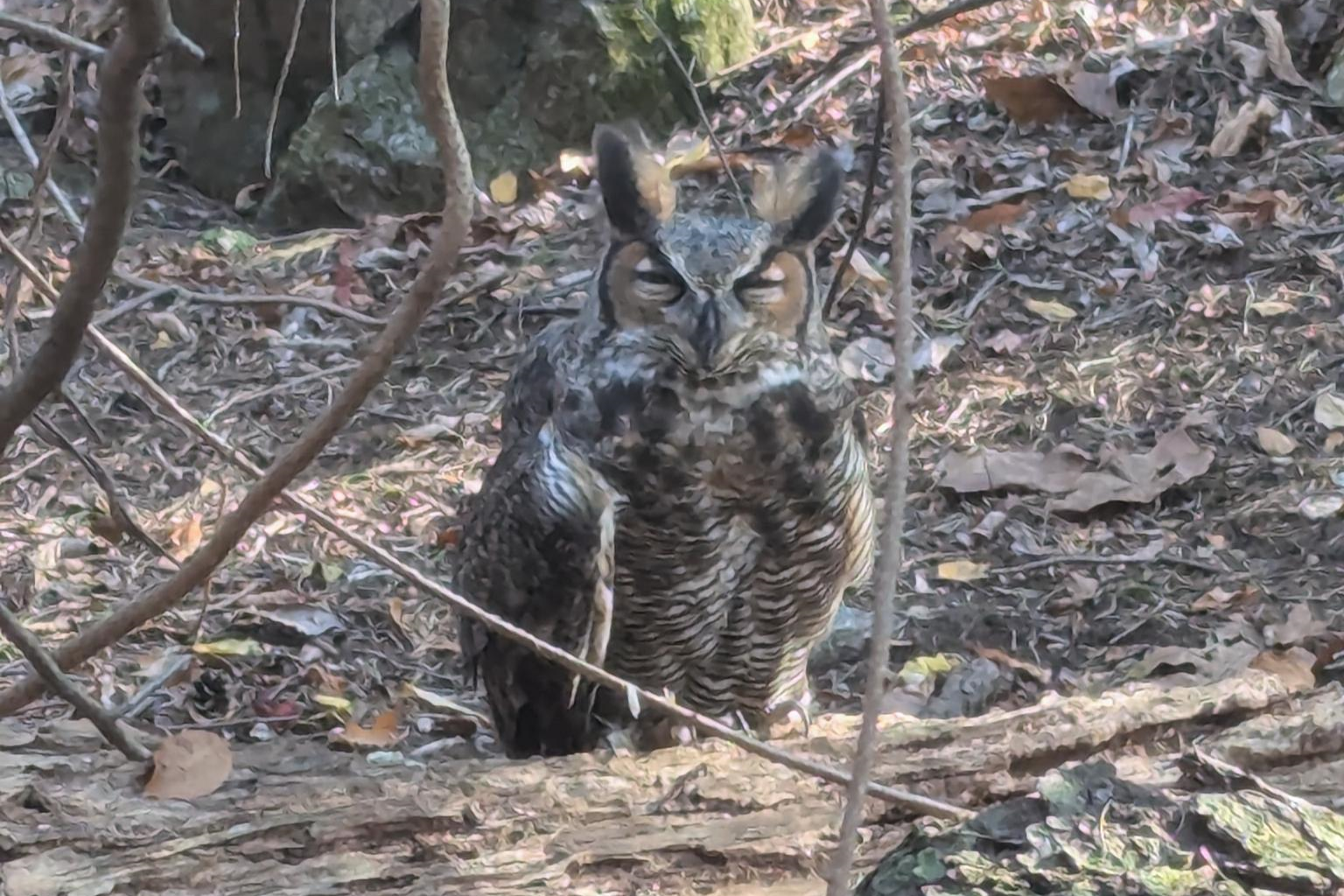Habitat News
Another Raptor Dies of Poisoning. This Time, a Great Horned Owl in Belmont
November 20, 2024
If you’ve walked the trails at Habitat Education Center in Belmont, there’s a good chance you have come across an owl. The wildlife sanctuary is home to many large birds of prey, including several Great Horned Owls. One of those owls recently died because of secondary anti-coagulant rodenticides poisoning.
What Happened
A visitor at Habitat called the Mass Audubon wildlife hotline on November 5 after noticing the owl seemed groggy and then fell off a log it had been perched on for hours.
Heal Veterinary Clinic in Watertown came to examine the owl and transferred it to Tufts Wildlife Clinic in Grafton. Unfortunately, it died two days later. A postmortem examination revealed the cause of death was poisoning due to rodenticides.
About Rodenticides
Second Generation Anti-Coagulant Rodenticides (SGARs) are a class of poisons that are used to control the rodent population, that prevent blood from clotting, causing internal bleeding, organ failure, paralysis, and often death. While the federal government banned the retail sale of SGARs in 2015 due to the dangers posed to children, pets, and wildlife, they remain legal—and widely used—by licensed pest control professionals in Massachusetts and other states.
The poison is set out as bait and is consumed by rodents like rats and mice, which then return out into the wild. When the rodents eventually die from the poison, they become an easy meal for predators like owls and hawks. These birds of prey suffer the effects of secondary poisoning, experiencing a drawn out and painful death, which could take months. Body tremors, internal bleeding, and other neurological conditions are not uncommon and it’s often too late to save them when they’re finally found and brought to wildlife rehabilitators.
Other Raptors Impacted
This latest incident follows several other high profile raptor deaths via poisoning.
MK, the first Bald Eagle to nest in Arlington in 50 years, was killed by rodenticides in 2023, followed by Flaco, an Eurasian Eagle Owl that escaped its Central Park Zoo enclosure, that died after being poisoned earlier this year.
Unfortunately, recent data shows this owl won’t be the last. A 2020 study found that 100 percent of Red-tailed Hawks tested at a wildlife clinic in Massachusetts had SGARs in their bloodstreams. And a national study of 303 dead Bald Eagles found that 82% of the sampled birds had been exposed to rodenticides.
A Campaign to Rescue Raptors
Mass Audubon has been spearheading A Campaign to Rescue Raptors, which supports more than 50 local and regional grassroots organizations in communities across Massachusetts, to significantly reduce the use of these poisons. We’re looking for help from landowners, pest control professionals, and volunteer wildlife advocates in every community across the Commonwealth to protect our wildlife by reducing the use of SGARs in our cities and towns, as well as by advocating for change at the State House.
Although Save Belmont Wildlife successfully lobbied the Town of Belmont to eliminate the use of SGARs from all municipal property, too many private landowners and neighboring towns still use these dangerous poisons, despite the prevalence of wildlife-safe alternatives and poison-free pest control methods.
Watch & Share the Campaign to Rescue Raptors Video
Get Involved
Find free tools and information to start a local campaign to reduce the use of SGARs and become a Climate and Nature Champion to help us protect the nature of Massachusetts.
Stay Connected
Don't miss a beat on all the ways you can get outdoors, celebrate nature, and get involved.




